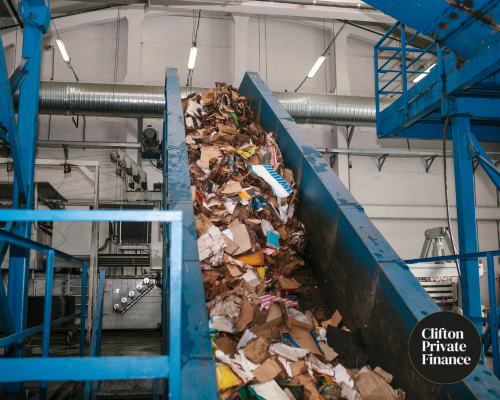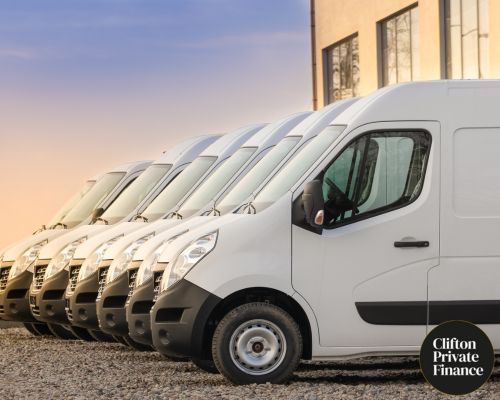Equipment Leasing
Purchasing new plant machinery or equipment using company cash can significantly strain cash flow. Excavators, bulldozers, cranes or loading shovels don’t come cheap – so an excellent option to get you started could be to secure this equipment using finance.
Leasing is a rental agreement where a lessee can use and operate equipment or machinery under a lease agreement from the owner (lessor) in return for regular payments.
Depending on the type of lease agreement, at the end of the term, the lessee can continue making payments to use the equipment, get an equipment upgrade to benefit from improved technologies or return the equipment to the owner (lessor). They can save you from paying large sums upfront while securing the necessary equipment to help you get your business.
There are 2 types of equipment leases:
Operating Leases
Usually taken out for a short or medium-term period. Allows the use of an asset but does not convey ownership rights, and as such, the lessor is not responsible for maintenance. The asset will also not appear on the lessee's balance sheet, where rental payments can be offset against profits.
Finance Leases
Often referred to as "Capital Leases", the lease is typically taken out for the asset's lifetime by the lessee. The lessee will make rental repayments over the rental period equivalent to the asset value plus interest. At the end of the term, the lessee can continue using the asset, usually for a lower rental repayment, sell the asset, get a percentage of the sales proceeds, and return the asset to the owner. With a finance lease, VAT can be spread over the repayment term.
Hire Purchase
Hire Purchase is a popular financing option that allows businesses to spread the cost of an asset over time, making significant investments like plant machinery more manageable. This method of financing is particularly beneficial for businesses that require heavy-duty equipment such as loading shovels, bulldozers, and excavators but may not have the capital to pay for these assets upfront.
- Under a hire purchase agreement, you make an initial down payment followed by a set number of capital repayments plus interest over a fixed term. This allows you to spread the cost of the asset over a period that suits your financial situation. The interest rate can be fixed or variable, depending on the terms of the agreement.
- One of the key advantages of hire purchase is that you become the owner of the asset at the end of the term. This means that the machinery is yours to keep once you’ve made all the payments. It’s important to note, however, that you are responsible for the maintenance and insurance of the asset throughout the term of the agreement.
- Hire purchase can also have tax benefits. For example, companies can claim capital allowances on the cost of the machinery, reducing their taxable profits. Additionally, the interest portion of the repayments may be tax-deductible.
However, it’s crucial to consider that while hire purchase can make plant machinery more affordable in the short term, the total cost paid over the term of the agreement will be higher than if you had purchased the asset outright due to the interest charges.
Popular Plant Machinery Models and Manufacturers The UK
The UK market offers a wide selection of plant machinery suitable for various applications. Here are some popular models & types of plant machinery which can be financed through us at Clifton Private Finance:
| Equipment Type | Popular Models | Manufacturer | Typical Use | Key Features |
|---|---|---|---|---|
| Excavator | Caterpillar 336, Komatsu PC200, JCB JS220 | Various | Excavation, demolition, heavy lifting, grading, landscaping, mining | Long reach, high power, versatility with different attachments |
| Bulldozer | Caterpillar D9R | Caterpillar | Moving large quantities of soil, sand, rubble, or other such material during construction or conversion work | Large flat blade at the front, ripper at the back, track-based mobility |
| Crane | Various | Lifting and moving heavy materials, used in construction of tall buildings | High lifting capacity, can be fixed or mobile, equipped with a hoist rope, wire ropes or chains, and sheaves | |
| Loader | Caterpillar 966, 972 | Caterpillar | Moving loose material from the ground, such as dirt, sand, or gravel | Large bucket on the front, can be wheeled or tracked |
| Backhoe | JCB 3CX, 4CX, 5CX | JCB | Digging, trenching, back-filling, and material handling | Bucket at the back for digging, loader at the front, good for small to medium jobs |
| Compactor | Evolution Hulk Electric Wacker Plate Compactor, Wolf 8200N Petrol Compactor | Various | Reducing the size of waste material, soil compaction in construction | High power, can be plate or wheel-based, used in waste processing, road construction, or landscaping |
| Grader | Caterpillar 966, 972 | Caterpillar | Fine grading and finishing in road construction | Long blade in the center, used to create a flat surface |
| Paver | BGP 205 Mini Compact Wheeled Paver | Various | Laying asphalt in road construction, creating pavements in building construction | High heat and weight capacity, smooth laying mechanism |
| Skid Steer Loader | Bobcat T590, S70, S450, S530 | Bobcat | Digging, lifting, and loading, landscaping, building, and farming applications | Compact size, high maneuverability, versatile with different attachments |
| Compactor | Evolution Hulk Electric Wacker Plate Compactor, Wolf 8200N Petrol Compactor | Various | Reducing the size of waste material, soil compaction in construction | High power, can be plate or wheel-based, used in waste processing, road construction, or landscaping |
Prices can vary based on factors like condition, age, and configuration. Consult manufacturers or sellers for accurate, up-to-date quotes.
The Value of a Broker for Plant Machinery Finance
The construction industry is a complex ecosystem that involves substantial expenditure. These costs can be broadly categorised into four main areas:
-
Operating Costs: These are the day-to-day expenses required to keep the business running. They include fuel for machinery, wages for staff, routine maintenance of equipment, and other overheads. It’s crucial to manage these costs effectively to ensure the profitability of the business.
-
Equipment Costs: This category includes the costs associated with the procurement, leasing, and repair of plant machinery. Given the high price tag of heavy-duty construction equipment, these costs can be significant. It’s important to consider factors such as the lifespan of the equipment, maintenance costs, and resale value when calculating equipment costs.
-
Infrastructure Costs: These are the costs associated with the development and upgrades of construction sites. This could include site preparation, installation of temporary structures, and implementation of safety measures.
-
Finance Costs: These are the costs associated with borrowing money to finance operations. They include interest payments on loans and leases, as well as any fees associated with securing financing.
Navigating this complex landscape of costs can be challenging. That’s where the role of a broker becomes invaluable. We, at Clifton Private Finance, can negotiate favourable terms with suppliers, identify cost-saving opportunities, and secure competitive financing.
With our deep understanding of the market, we can leverage our network and expertise to secure the best deals. This can result in substantial savings, making the investment in plant machinery more accessible and manageable. We'll provide valuable advice on managing risks and optimising the use of resources, contributing to the overall success of your business.
Tax Implications for Plant Machinery Finance
Your choice of finance agreement can significantly impact your tax liabilities. Here are some key considerations:
- VAT: If you lease plant machinery for business use, you may be able to reclaim a portion or even all of the VAT. This can result in substantial savings.
- Corporation Tax: Companies can claim lease payments against corporation tax, reducing their overall tax liability.
- Capital Allowances: When a business purchases new or replacement plant or equipment, capital allowances are available which can reduce the taxable profits, and therefore the tax liability. The Annual Investment Allowance (AIA) is a tax relief that allows businesses to deduct the full cost of certain qualifying assets, such as plant and machinery, fixtures, and fittings, from their taxable profits.
- Super-Deduction: A capital allowance equating to 130% of the cost price of a qualifying asset can be claimed against tax in the year of acquisition.
Remember, allowances can depend on factors like emissions, energy efficiency, and guidelines set by HM Revenue and Customs (HMRC).
Maintenance and Insurance for Plant Machinery Finance
The responsibility for maintenance and insurance can vary depending on the type of finance agreement:
- Contract Hire: In a contract hire agreement, the lender is typically responsible for the maintenance and wear and tear of the machinery. This can be a significant advantage as it reduces the operational burden on your business.
- Finance Lease/Hire Purchase: If you opt for a finance lease or hire purchase agreement, you’re usually responsible for the maintenance costs. This means you’ll need to factor these costs into your budget.
Regardless of the type of agreement, comprehensive insurance is critical. It covers your assets and liabilities, protecting your business from unforeseen circumstances. Plant machinery insurance provides financial protection against the loss or damage of construction plant and equipment that you may have temporarily rented under contract.
Asset Refinancing - Plant Machinery Finance
If your business owns assets, it may be possible to unlock value to release cash. Typically, there are two ways to raise finance in this way. One way is to use the asset as a security for a loan. The second way, often called asset-based lending, is to sell an asset to a specialist lender for an agreed amount. Your business can then lease the asset back from the lender based on an approved capital plus interest repayment schedule.
Pros & Cons of Asset Financing
Pros:
- A great way of reducing the upfront cost of purchasing high-ticket value items
- With fixed repayments, you can budget effectively
- With this type of finance the asset you are buying acts as the security
- The provider normally covers maintenance and insurance costs
- It can be more cost-effective than bank loans or an overdraft facility
Cons:
- As with most debt, there are implications if you don't make repayments on time. The asset could be reclaimed, which could seriously impact your business.
- Specific damage to the asset may not be covered by insurance and must be covered by you (your business).
Using a Finance Broker for Plant Machinery Finance
Finding the optimal plant machinery finance solution can be daunting. At Clifton Private Finance, we can:
- Compare lenders and products to find the best fit for your needs.
- Advise on the pros and cons of each option to help you make an informed choice.
- Handle paperwork and administration for a smooth, hassle-free process.
- Negotiate better rates and terms, potentially saving you money.
With access to multiple asset finance lenders and expertise in the industry, we offer bespoke solutions tailored to your budget and requirements.
Get in Touch
If you're interested in financing plant machinery through leasing or other options, contact Clifton Private Finance today. Our expert advisors will answer your questions and provide a free, no-obligation quote.












